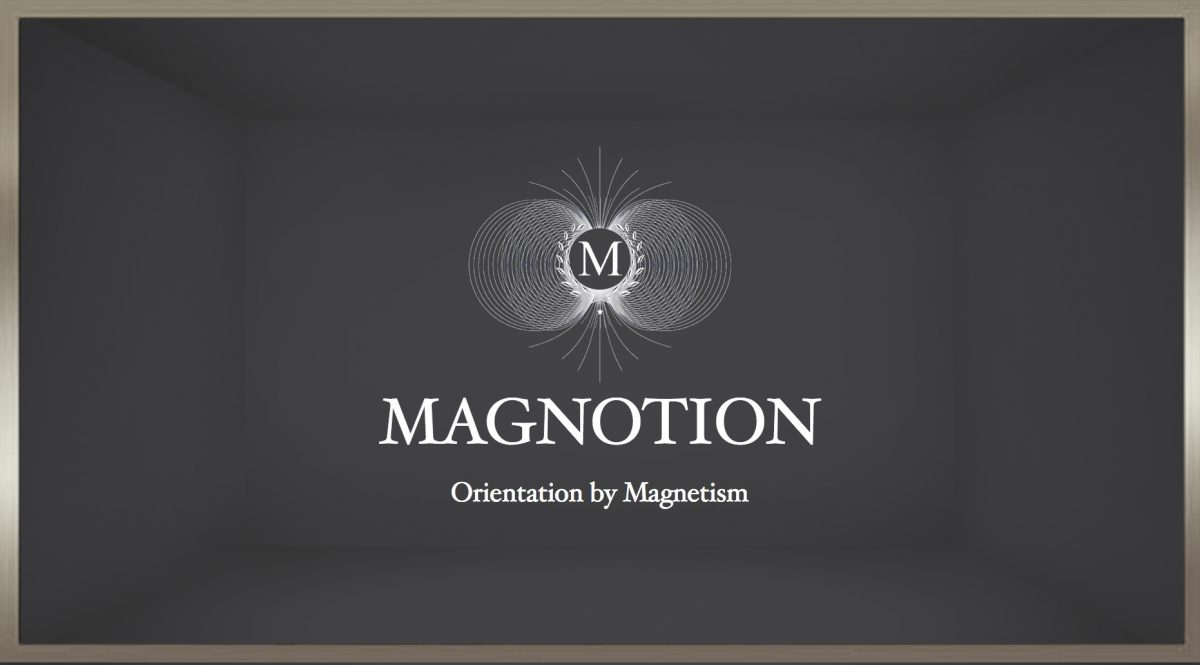
Magnotion is a science communication project based on the research of prof. Eric Warrant and Lund Vision Group. By exploring the intersection of art, music and science we aim to increase the understanding and appreciation of scientific knowledge.
This project has received funding from the European Union’s Horizon 2020 research and innovation programme under grant agreement No 741298
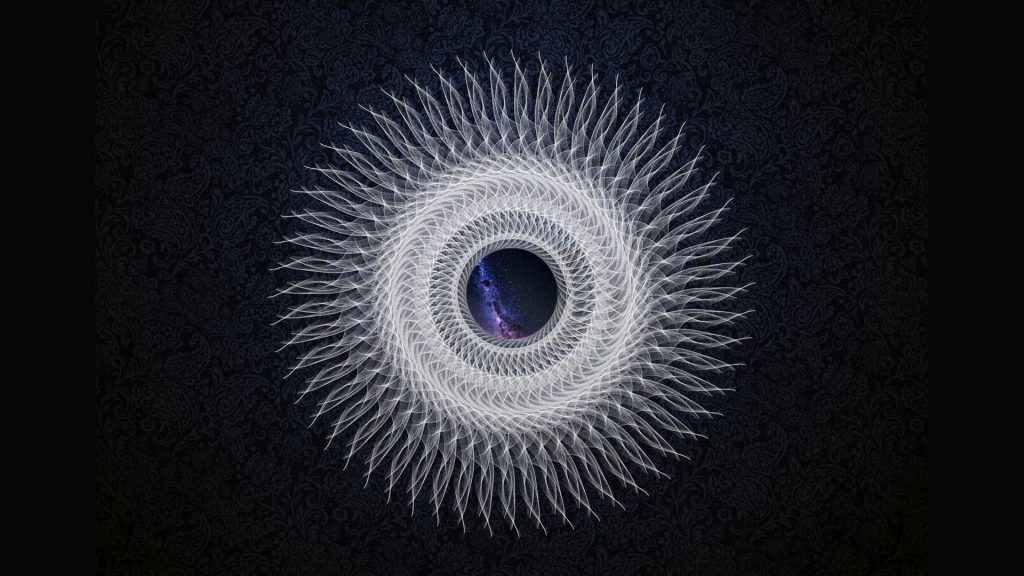
Just when you thought you knew everything
about the Bogong moth
there is a new chapter
THE JOURNEY
Please choose The Bogong’s theme below,
a musical accompaniment for your journey
As night falls
you are fast asleep.
Millions of night travelers
start their journey;
flying soundless
towards the mountains
of the south
scouting their way
with nocturnal senses
unknown to man
until…

the Bogong moth
renowned for its skills of orientation
starts sharing its secrets.
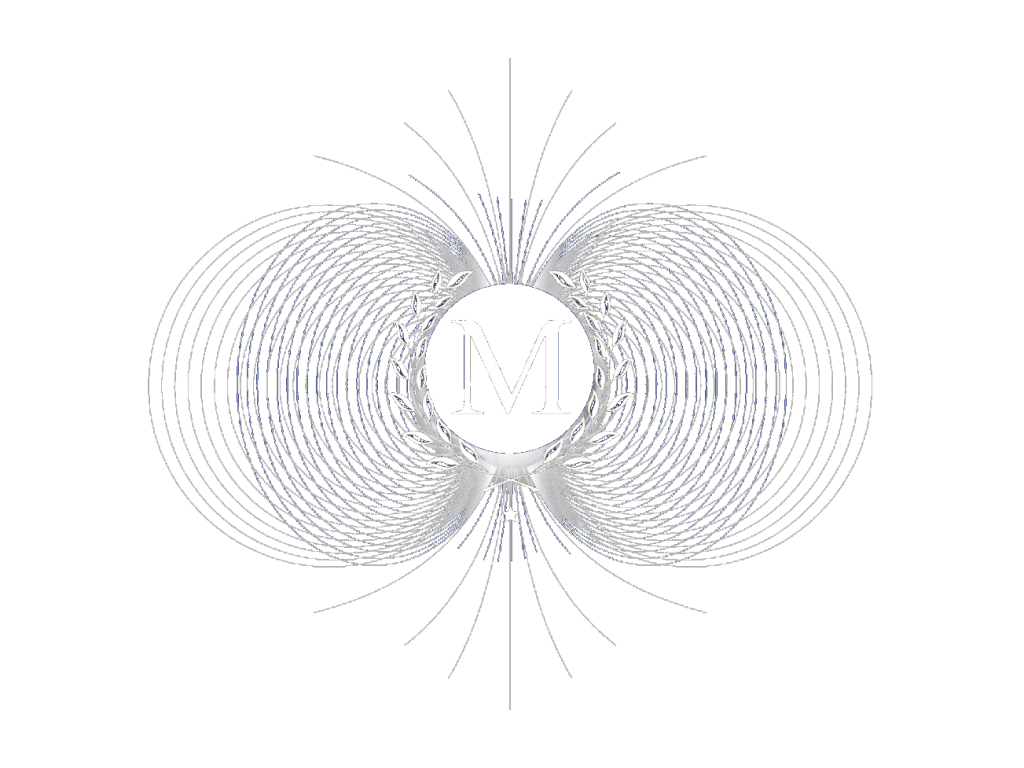
To follow the Bogong
on its flight takes you
out of your mental pupa;
lifting you over the grand plains
of the Australian wilderness
towards the chosen caves
in the Alpine Meadows.

Taking cues from
moonlit landmarks
using the Milky Way
as an arrow in the sky
the Bogong starts its journey.
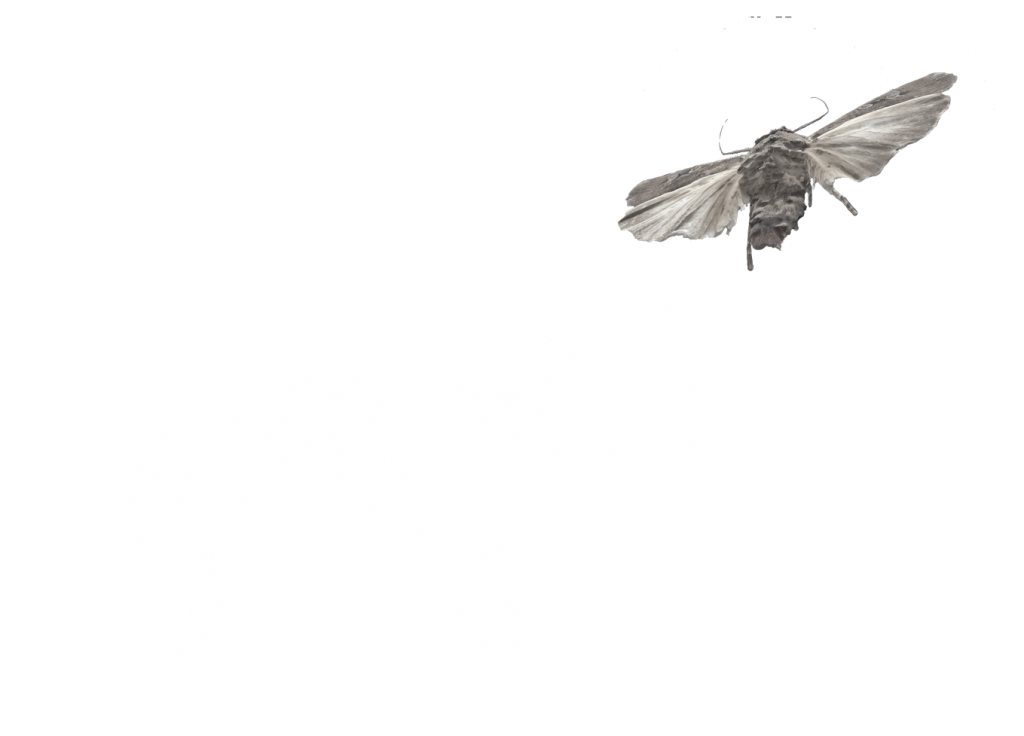
If we understood more
about living in darkness
we could find direction
with the senses
of the Bogong.
Click and hold the Bogong to move and zoom in the 3D-viewer.
For best experience press full screen.
Looking at every detail


But there will be challenges
along the way.
HUMAN LIGHT TRAPS
diverting thousands of moths
from their flight paths
trapping the night flier
in the daunting
grip of the glare.
Not all Bogongs will make it.
For those that survive
it is time to follow

Earth’s
MAGNETIC FIELD
to guide them onwards,
towards their destination.
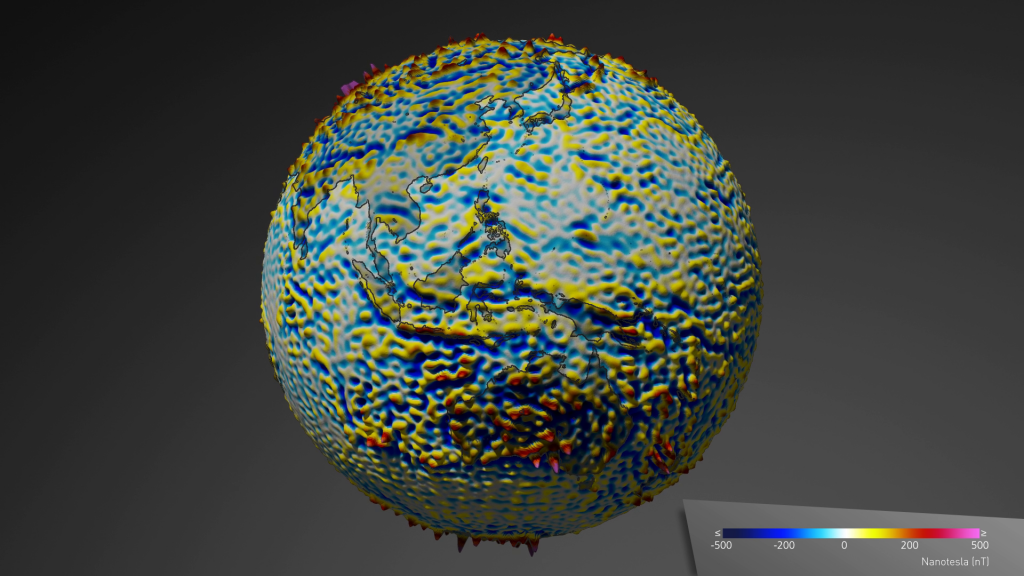
Earth’s magnetic field mapped by European Space Agency.

Calibrating technology for studying nighttime flight patterns.
By tethering migrating moths in an outdoor flight simulator, we found that their flight direction turned predictably when dominant visual landmarks and a natural Earth-strength magnetic field were turned together, but that the moths became disoriented within a few minutes when these cues were set in conflict.

We thus conclude that Bogong moths, like nocturnally migrating birds, can use a magnetic sense.
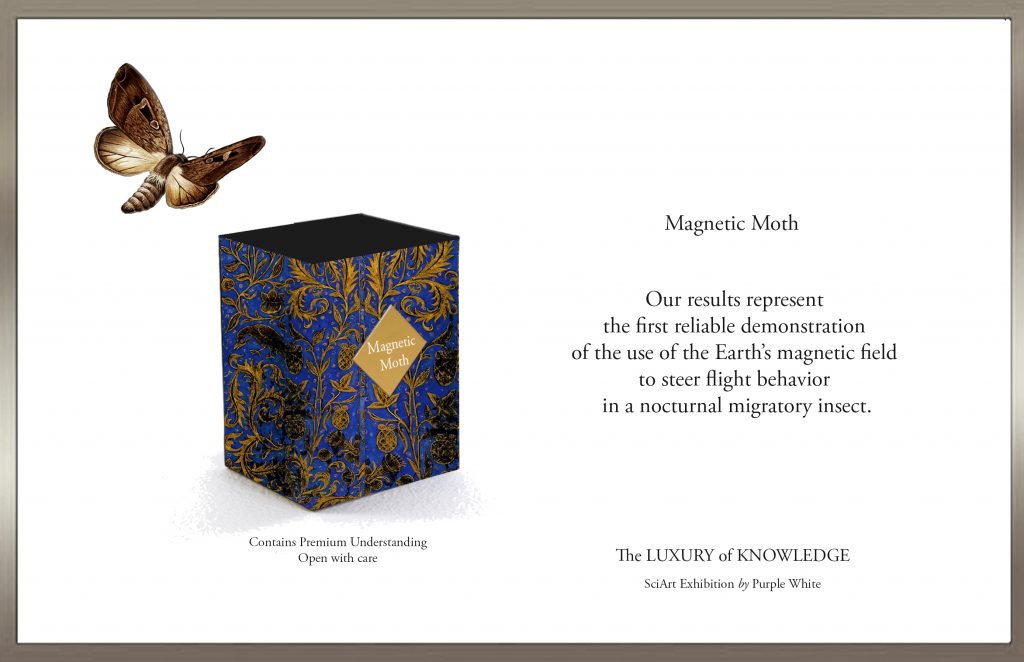
Listen to
Prof. Eric Warrant telling the story
of immigrating moths
in his own words
while driving on location
in the Australian Alps.

As the swarms
of immigrating moths
approach the mountains
particular scent marks
will help them find
the desired destination
in the cramped caves
of their ancestors.
A SCENT of SCIENCE
Imagine
how a drop of
Magnotion
could guide you
through the darkness
every scent of the way.

See more of
The LUXURY of KNOWLEDGE Scicom Exhibition here
But then there’s
B A T S
THE BAT CHOIR sings The Feeding Buzz
As the bat searches the dark air for moths it fires short sound pulses with regular intervals at frequencies far above the limits of human hearing. Here performed 5 octaves lower, at the top of the human voice (G6). As the bat ensonifies the prey, the time intervals get shorter and shorter until the moth is within striking distance….The song ends with the social call of the bat.
Solo by coloratura Johanna Ahlmark-Mannila Choir Ensemble Syd
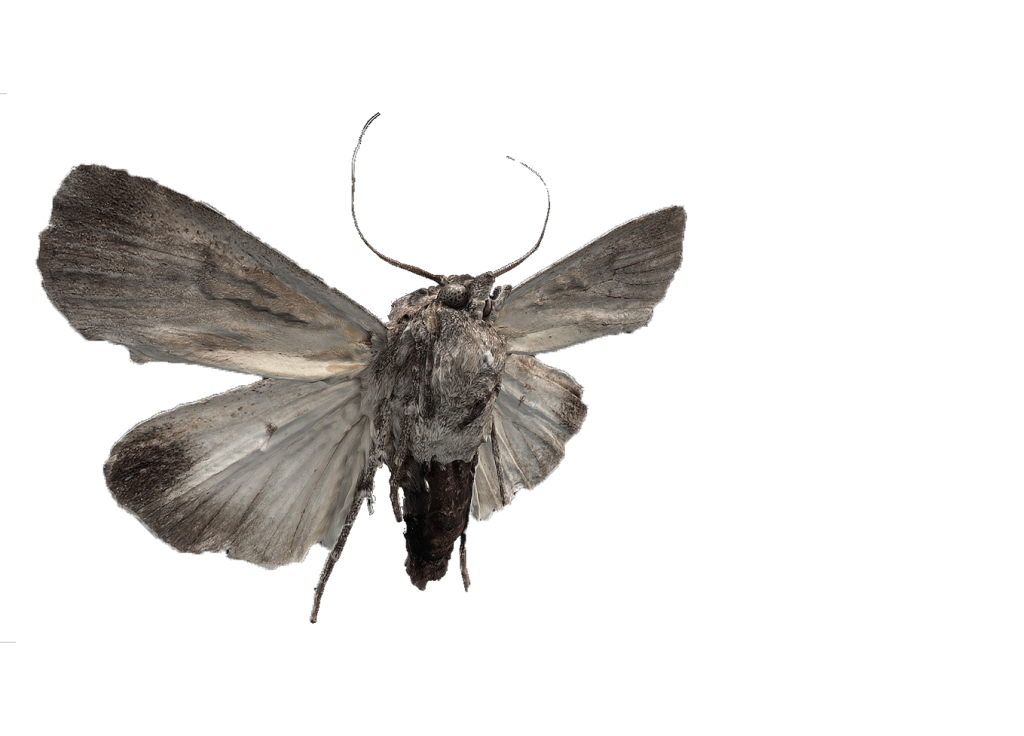
SUCCESS
Finally, after a perilous flight
across the vast and wild lands
the Bogongs reach their goal
Arriving at a home
they have never seen before
finding their place on the cave walls
preserving energy together.

Bogong moths on cave wall.
Aestivation (from Latin: aestas, summer) is a state of animal dormancy, similar to hibernation, although taking place in the summer rather than the winter. Aestivation is characterized by inactivity and a lowered metabolic rate, a state that is entered in response to high temperatures and arid conditions.
Thank you for taking the journey with us.
Please proceed to the
LUXURY of KNOWLEDGE
exhibition here
Keep following the research progress
of
and
MAGNOTION
was made possible by
the European Research Council.


